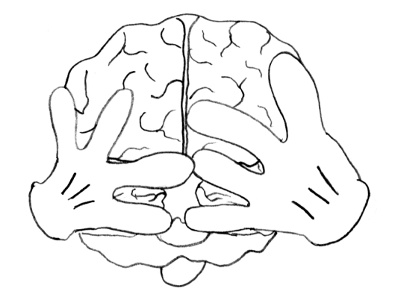Don't think

My friend Jeremy recently wrote about the one push-up technique: you don't have to commit to lots of pushups, you can just commit to one. By the time you're all geared up and have done a single pushup, the second one won't seem so difficult and so on. It reminds me of a similar idea I heard once, where you don't commit to run, you just commit to put your shoes on and walk out the door. After that, you can come back in, but chances are you won't.
I think there's something interesting about these kinds of techniques: they rely on a certain lack of analysis. If you know that every time you do one push-up you tend to do more push-ups, or even if you just think about the reason you expect the technique to be useful, it stops being useful. Ugh, I don't feel like doing push-ups today. Well, I only have to do one. But, wait, I know if I do one I'll probably do a few more. Ugh, I don't feel like doing push-ups today.
That's not to say that they can't work, just that for them to work you have to avoid thinking about them. In a sense you are cultivating a deliberate degree of induction blindness: ignoring a pattern that can be derived from repeated experience. Luckily, not thinking is actually fairly easy to do. Really, it's thinking that's the hard thing, but if you're in the habit of thinking about things it can be difficult to turn off, even when it's for your own good.
This idea reminds me a little of the higher power I wrote about earlier. Not thinking seems wildly irrational, and it would be for a purely rational being. However, for irrational beings like us, irrational thinking can lead to rational action. In this case, you're countering one kind of irrationality (avoiding doing something in the moment) with another (tricking yourself into thinking you'll do less than you actually will).
Counterintuitive as it may be, turning off your analytical process and just trusting the system you elected to follow can be a smarter move than trusting your thoughts at a time when they are particularly vulnerable.